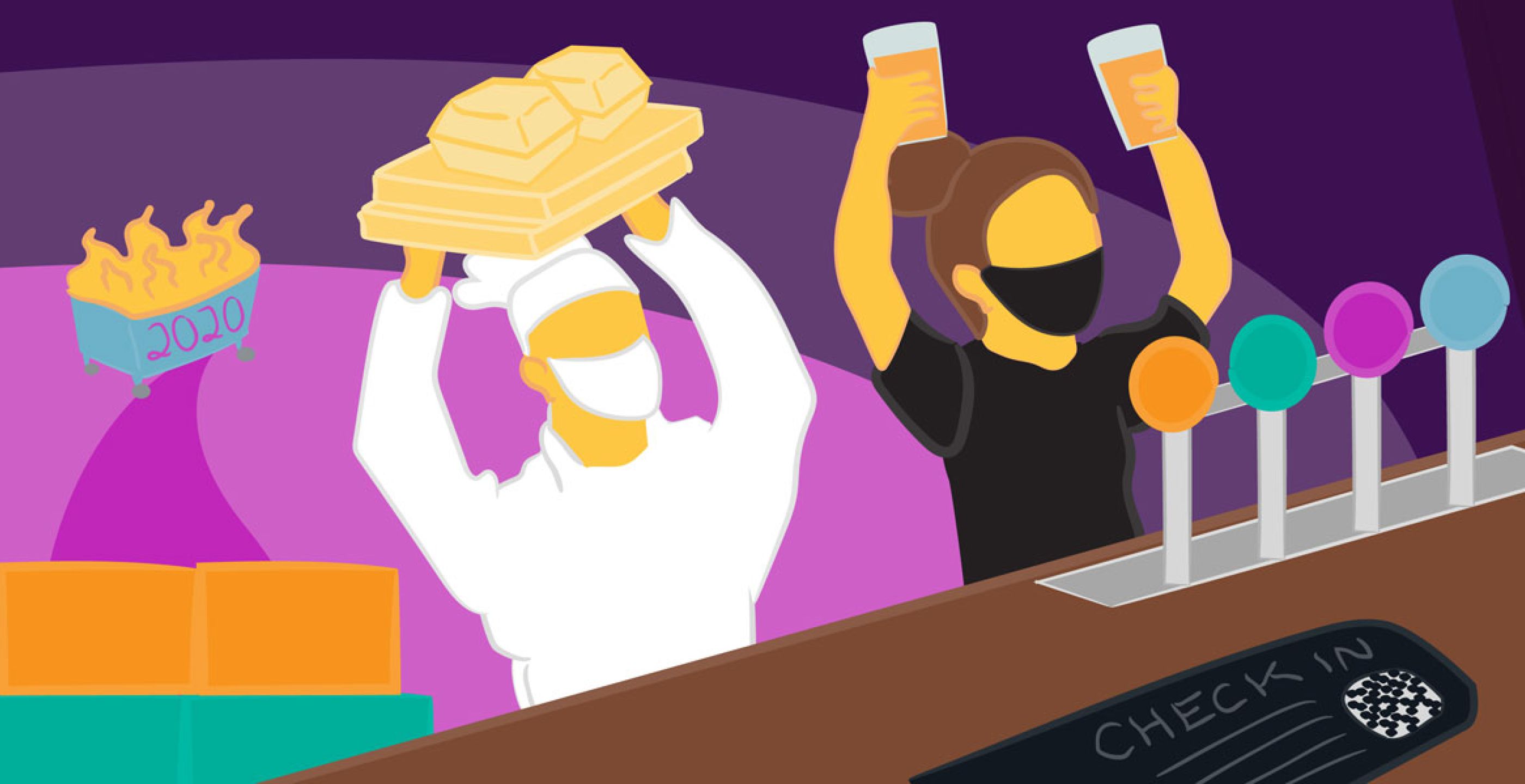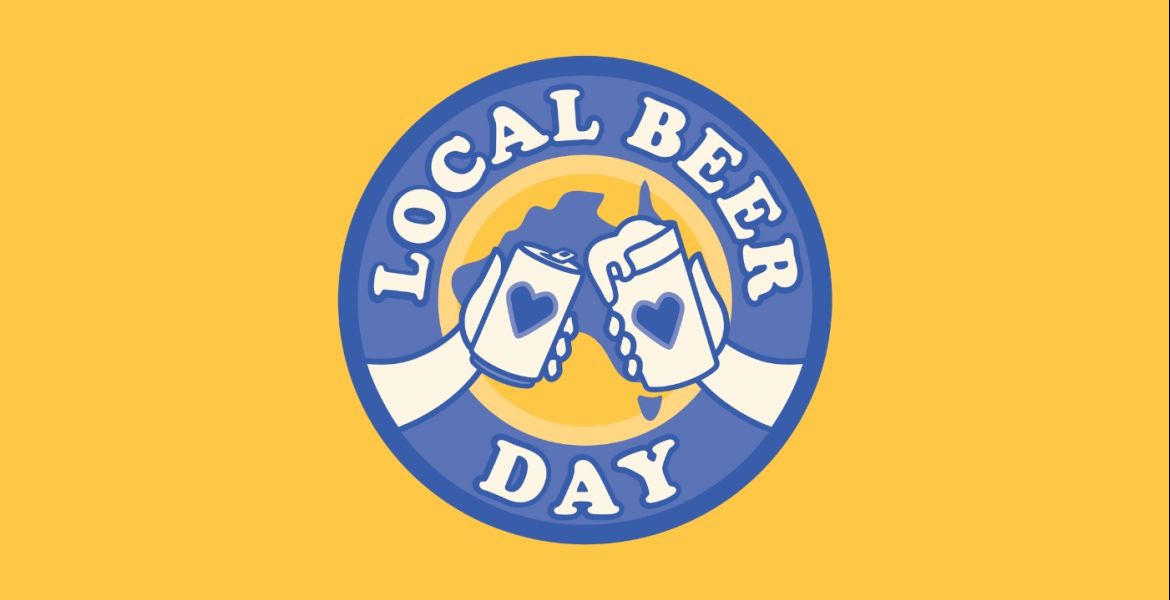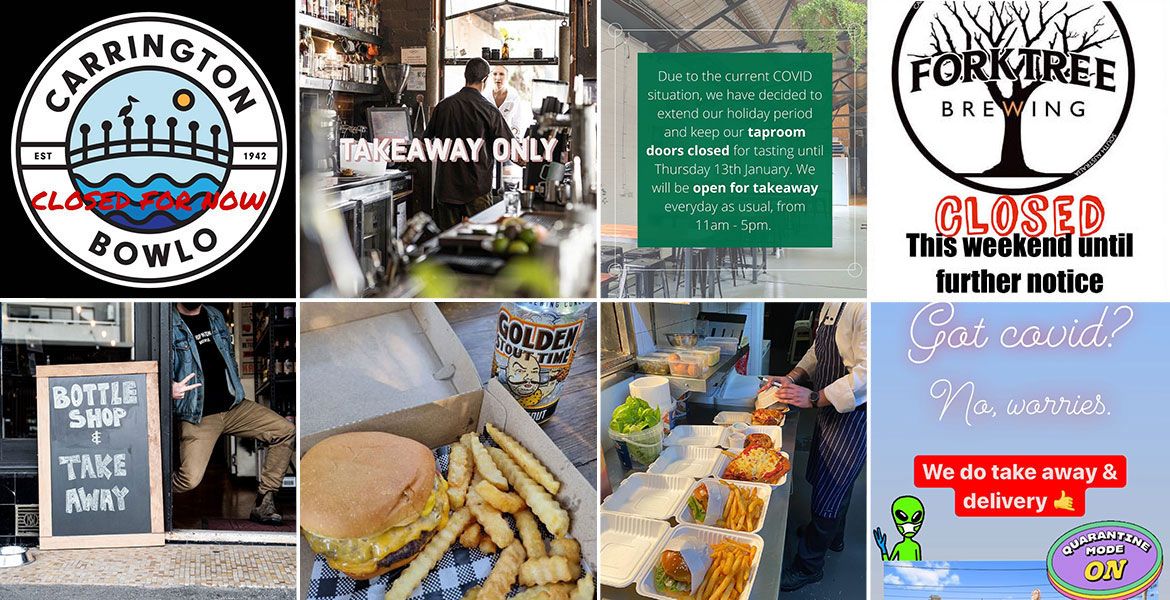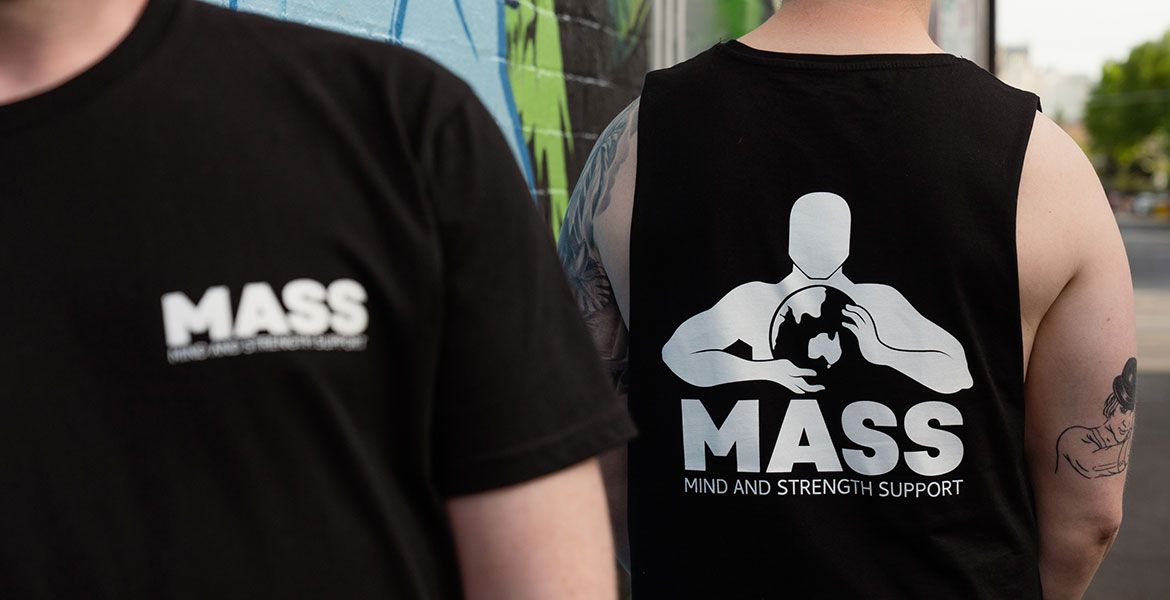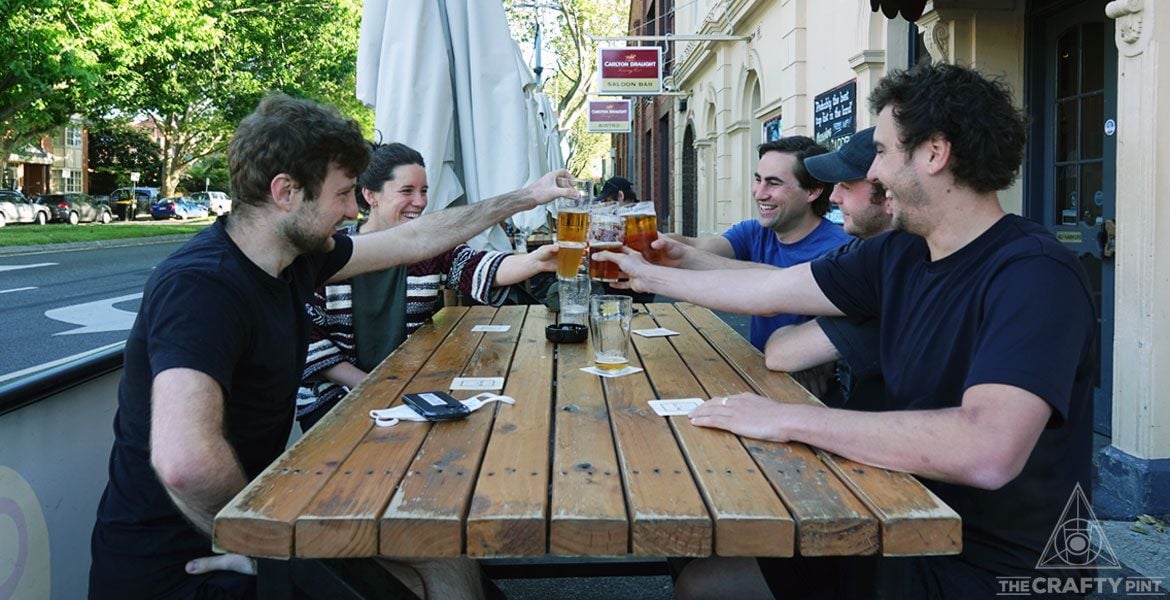Last week, we looked at the impact of COVID-19 on the brewing side of the local beer industry ahead of the one-year anniversary of the nationwide lockdown.
Here, on the anniversary itself – and Beer Swag Day 2021 – we complete the mini-series with an in-depth look at the experiences of those in the hospitality and retail side of the industry – as well as the beer lovers who've helped keep many businesses alive.
The residents of Albury and Wodonga are lucky enough to have two excellent venues dedicated to celebrating independent Aussie brewers. On a drive from Canberra to Melbourne on the Sunday just gone, the Crafty team visited both – and it was a stark reminder of how COVID-19 has impacted everyone, but some far more than others.
North of the state border, Gavin Spencer would have thought he was facing ruin in March 2020 as he’d only opened The Woolhouse less than a month earlier. Yet, 12 months on, he’s able to look back on a year in which he never had to wear a mask at work and has been operating again – albeit under changing restrictions – since the middle of last year.
A short drive away in Wodonga at The Goods Shed, which has been bringing good beers and good times to guests in its impressively repurposed goods shed since 2016, the picture has been starkly different. Caught up in both Victorian lockdowns, through which the team switched to home deliveries and takeaways to keep things ticking over, months on from the reopening of doors to customers it’s still very much a case of working out how best to ensure the business bounces back.
The comparison might be an extreme one, but it does highlight the different manner in which the pandemic has affected people throughout the hospitality industry. On the one hand, there are the anecdotes from the beer scenes in WA and Tasmania, in particular, of people almost forgetting COVID even happened as they’ve been operating relatively normally for so long. On the other, there are the quiet (and closed) CBD cafés, bars and restaurants waiting to see whether and when foot traffic might return to something close to pre-COVID times.
A year to the day since every business was shutdown, challenges of different shapes and sizes still face business owners and their staff in much of the wider hospo world, not least with the likes of JobKeeper and rent assistance set to end in the coming days.
The recently-appointed chair of the Night Time Industry Association (NTIA), Justine Baker, says there have been success stories in hospitality and connected industries but the road ahead remains hazardous. The industry group represents members across hospitality, events and arts sectors, launching back in 2018 in response to Sydney’s lockout laws, then shifting its focus to a national one when venues across the country closed, advocating on behalf of various connected nighttime industries.
Justine says live music and performers’ futures are of particular concern without government support, and highlights the disparities in how CBD, suburban and regional areas have been impacted by the pandemic, to date and ongoing.
“In the suburban areas, trade’s actually not too far off last year or, alternatively, it can be above,” she says. “But CBD venues are still significantly impacted and there’s such an ecosystem in the CBD.”
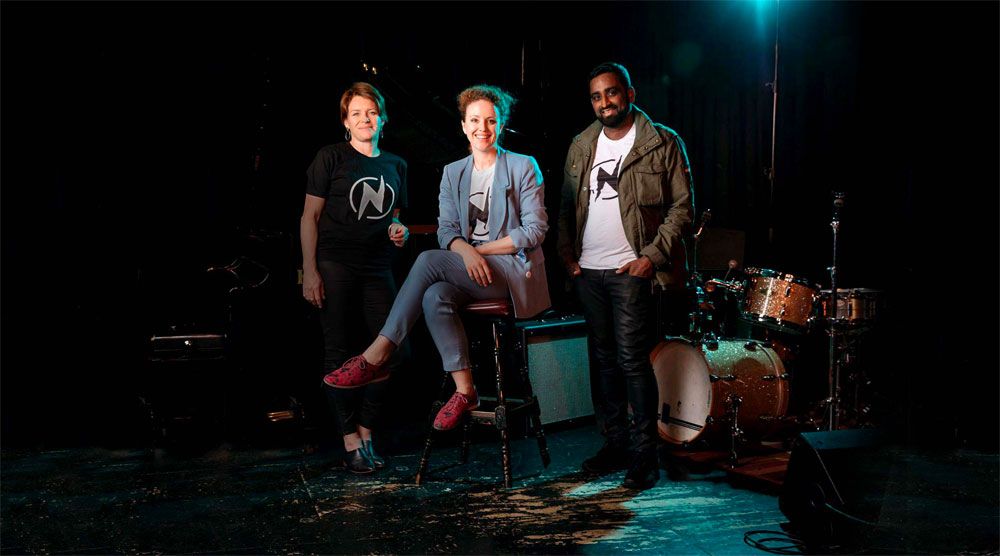
With many still working from home and some demographics heading to venues and events less than others, Justine says far more needs to be done to pull people back into the city so those businesses can survive.
“It’s up for hospitality and the nighttime industries to create the pull as well, so if there’s something great to go to after work then it’s more likely you’ll go in,” she says. “The under-40s are back and are excited to be out, engaged, and really valuing the experience because they know what it’s like when places shut.”
One business owner who’s reluctantly made the decision to close a business due to COVID-19 is Iain Ling. He’s the publican at the Lincoln, in a part of Carlton close to the Melbourne CBD, to whom we spoke for a feature on the day Victoria became the last state to allow patrons back into venues following the first lockdown in June last year. Many of the concerns he raised in that article came to pass and, while the Lincoln lives on, its easy-going Chinese sibling Super Ling will close in the coming weeks.
He describes the most recent snap lockdown in Melbourne, which wiped out a full weekend’s bookings over the Chinese New Year, as “nails in coffins – and there were a lot of nails.”
Even putting the losses caused by extended closures and the inability to accept large function bookings around Christmas to one side, he says the fluid nature of the hospitality world even now is a source of ongoing headaches.
“It’s a whole lot of you just don’t know,” he says. “You’re not operating in a free market economy – you can get closed down at any time.”
As for the decision to close Super Ling – the small restaurant not helped by its location close to a quiet CBD and the ongoing disappearance of the majority of nearby university staff and students – Iain feels it's one they made at a good time.
“We will all still be mates. We live to fight another day,” he says, although fears other owners might try to hold on too long, whether through naivety or blindness to the realities facing them, and dig themselves into deeper trouble, not least at a time when the unforeseen disasters keep on coming.
“Looking at all the floods over the last few days, the circumstance is just crazy. If you have any problems with your location or staffing issues or whatever issue it is, they are just compounded at the moment,” he says.
“If some people choose to close now, they can say it’s not their fault. Don’t leave it too late where they can’t pay their debts or end up with things hanging over their heads."
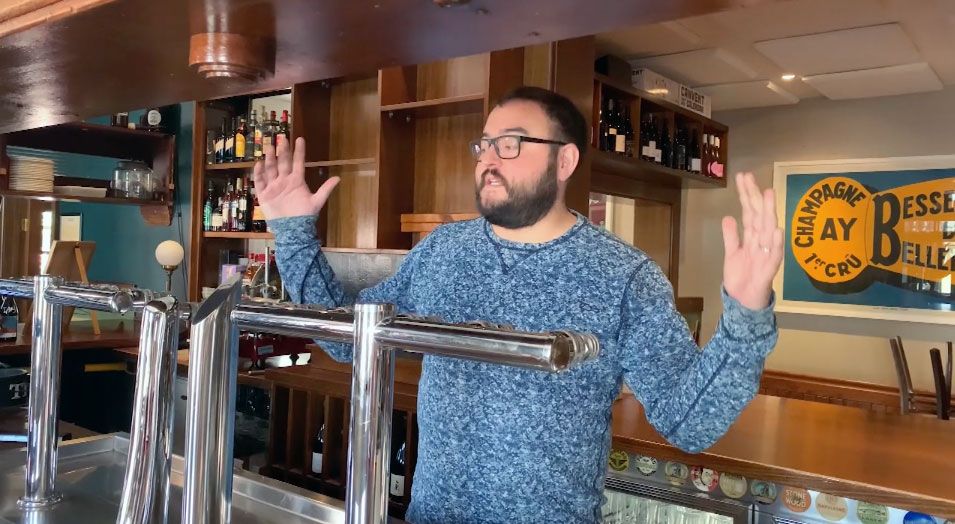
Of course, hospo businesses are nothing without their staff. Many lost their jobs last year, some leaving the industry as a result, and staffing issues remain a concern for the NTIA, something that's compounded by the ongoing closure of international borders.
“The pool has shrunk enormously,” Justine says. “There’s been a real displacement of hospitality workers, who may have gone back home or sought other opportunities because there was such uncertainty in their roles.
“Getting young talent back in the industry who will become future leaders is one of the biggest challenges at the moment. And that’s everywhere – every state, we’re all feeling it.”
Taz Matthews is one of those long-term hospo workers whose life was thrown into disarray a year ago. She was made redundant from her role as a bar and events manager, spent the best part of seven months unemployed, and ended up working for a short period for Australia Post.
Today, she’s back in hospitality at The Rainbow in Fitzroy, and fears it’s not just a case of a small pool of talent but also one of an industry in which there's less opportunity to progress your career. It’s not uncommon now for business owners to be back behind the bar, and working late nights – a reflection of where their businesses sit financially.
“I’ve got so many friends who’ve worked in the industry for decades who’ve left,” she says. “They’re realising there are other jobs out there with better hours and more financial security.”
Her situation was particularly tough as her housemates all worked in hospo too. Her husband was in and out of work for parts of last year, while another housemate and former colleague was unemployed even longer than she was; spending up to 23 hours a day at home for months on end, applying without luck for jobs, could put a strain not just on mental health but also on longstanding friendships.
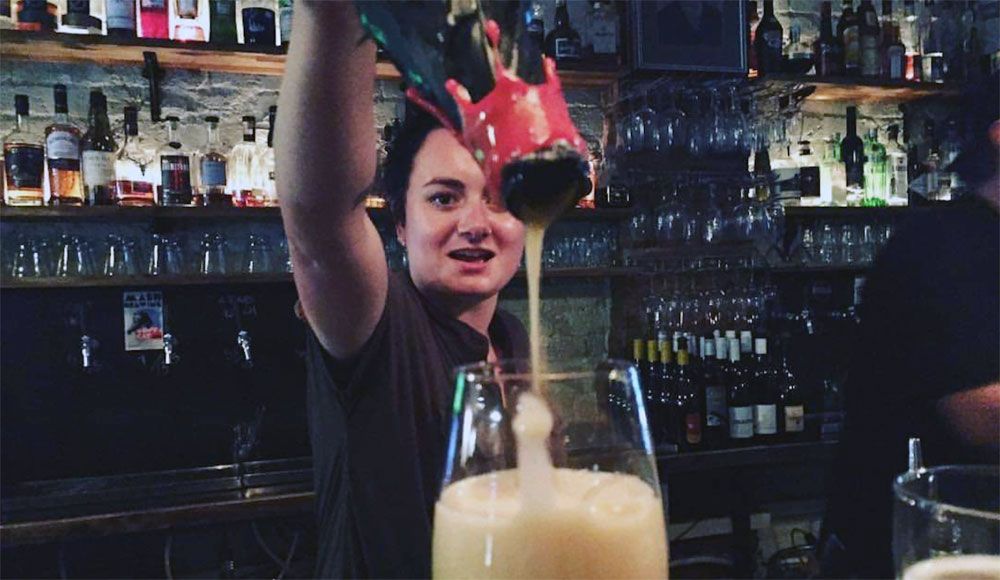
“The whole hospitality and beer industry had so little support,” Taz (pictured above) says. “I’ve lost count of the number of jobs I applied for, including ones for which I had no skills.
“There’s a lot of people that kept their jobs throughout the whole thing, and had to transition to working at home, but don’t realise the severity of what a lot of people were going through.”
On the plus side, she says relationships between people in different parts of the industry have been strengthened, saying: “The camaraderie and support has been amazing.” What's more, the unprecedented circumstances of 2020 meant there were plenty of people who had less on which to spend money while they continued to earn – thus able to save rather than worry about rent or mortgage payments – and they've been eager to head back out and support the industry as it’s reopened.
As with the brewing side of the wider beer landscape we focused on in part I of this series, it's a reminder there are bright spots to be found even in the regions and sectors hit hardest.
The need to innovate and adapt – OK, pivot – led some businesses to introduce new aspects to their offering that remain to this day, whether that’s selling merch over the bar, offering takeaway or home delivery, or launching sidelines in meals sold through retailers.
“It’s worked well for some places,” Iain suggests of the diversification. “Some places aren’t opening on Mondays and Tuesdays because they’re using that time to cook supermarket packs.
“It’s all about adding strings to your bows.”
Of course, if you ran a bottleshop rather than a shuttered pub, then chances are the past year has been a bumper one, especially if you had an online arm.
One such business is Sydney-based Beer Cartel, an operation that was already playing in the online space back in 2009. Co-founder Richard Kelsey says they experienced more than 200 percent growth, while their sibling business Brewquets expanded closer to 400 percent – sales figures he says made the team feel dizzy each day and saw them double both their workforce and their warehouse capacity.
“To get by we completely reimagined our whole picking and packing process, refining things on the fly so that we could handle the massive increase in sales without headaches,” he says.
“The pressure of the situation in forcing our hand really has helped us grow and took us to where we are now. As things came to the end of the year, it meant that our normally extremely busy period was managed with complete ease.”
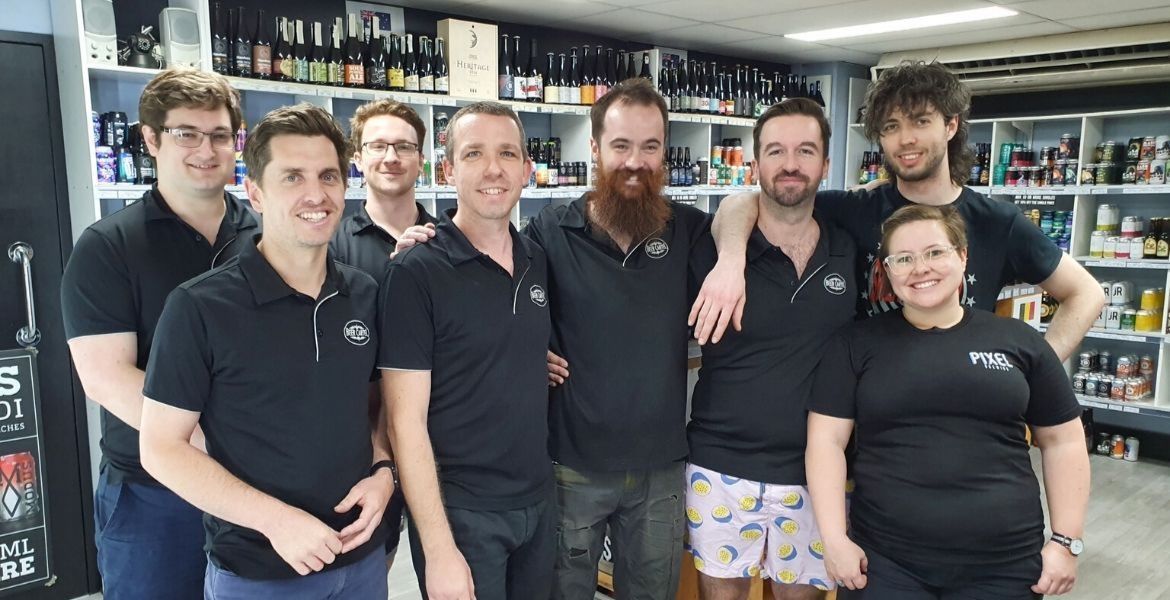
While acknowledging not everyone is in the same boat, he’s confident better times lie ahead.
“There’s a lot of caution at the moment until we’re on the other side of vaccinations,” Richard says. “Once we get through this then hopefully we’re back to where we were, which was a buoyant and a growing industry.”
Of course, there’s a crucial element of the wider beer community without whom far fewer businesses would have made it to this point: the consumers. Throughout lockdowns, it was beer lovers' support of local bars and breweries that not only helped many survive but also lifted the spirits of those in the industry.
As soon as they were able to, Adam Gregory and Anna Sutton were back on the road making up for lost time. The couple, who currently live in Gympie on the Sunshine Coast and can be found on Instagram as A Couple Of Beers, had been planning to head to Garage Project’s Hāpi festival in New Zealand as well as GABS in Auckland last year but COVID would see them spend much of 2020 far closer to home.
This year, having already squeezed in a tour of Tasmania, Summer GABS on the Gold Coast, and a visit to Adam’s family in Mildura since borders reopened, they have a tour of South Australia’s beer scene and a trip to Perth’s Froth Town in their sights too.
For all that, he says they do sense a wariness among some on both sides of the bar, not least after travelling to an event at a popular Brisbane venue in recent weeks that attracted a smaller crowd than they expected.
“There’s still that uncertainty [for venue owners] that booking events becomes problematic because you don’t know if there will be a snap border closure, or a change to seating numbers, or if you can order beer at the bar, or it will be table service,” Adam says, suggesting Brisbane’s snap lockdown, which kept around half of ticket-holders from attending the Gold Coast GABS, added to that uncertainty.
“For the punters, you are less likely to make plans too far in advance.”
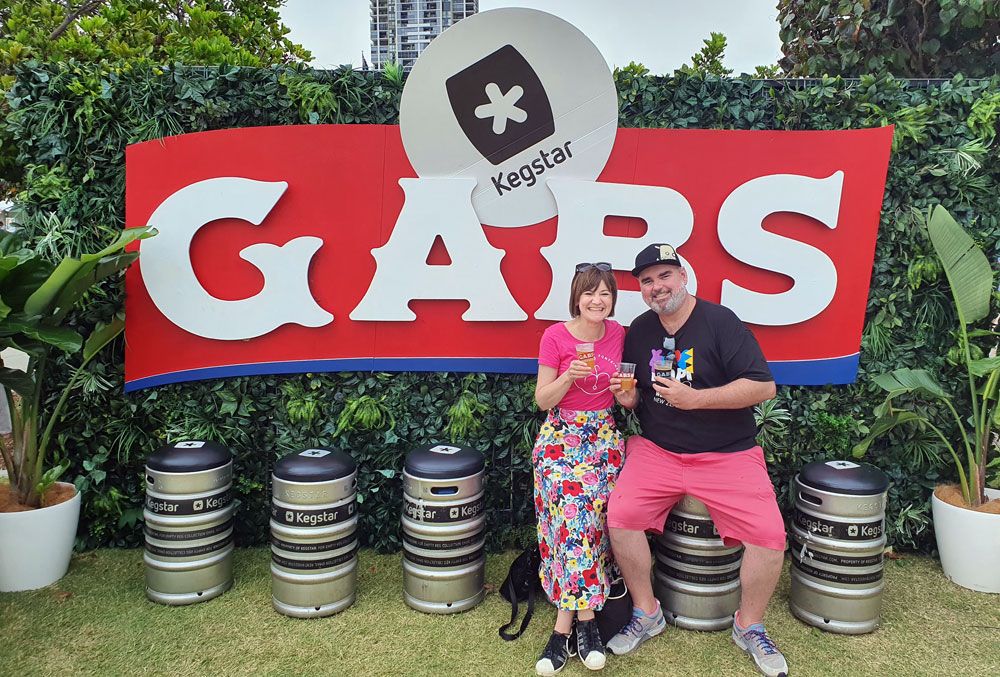
He also believes that, for some, changes to shopping habits remain to this day.
“People have got used to buying more quality beer and drinking at home,” a change he says is more likely to impact smaller, high end beer-focused venues than mainstream pubs and bars or larger, family-friendly operations, given people may think twice about spending heavily on a schooner of expensive beer when they can pick up a can for less at a bottleshop or online.
Their trip to Tasmania, however, sounds like a reminder of how things once were and how they will hopefully be once again. Businesses there might have suffered from a lack of tourists while state as well as international borders were closed, yet locals started exploring their state more than before while they awaited the return of interstate visitors.
“It was brilliant,” Adam says. “We were in that early wave of tourists coming over and there were still a lot of bus loads of tourists in places like Bruny Island. We spent ten or 11 days there, drove 1700km around most of the island, visited every brewery that was there, and everyone was so appreciative that the border had reopened.”
Brendan Fernandez, one of the more active and colourful beer lovers you'll find on social media under The Beer Economist banner, has experienced similar positivity in WA, praising the ability of not just breweries and venues but also event organisers to adapt to the COVID normal.
“I think a lot of opportunity came out of it and, sure, they were forced, but it’s just created a lot of opportunities,” he says – even his local bowlo turned to growlers during the state’s lockdown last year.
In the months since restrictions eased in WA, he says people have been as keen as ever to connect with other beer drinkers and share in the community craft beer brings, whether at busy beer festivals or the ongoing online brewery tours he still takes part in.
“[Froth Town] was absolutely packed,” he says of last year’s first big, post-shutdown beer event. “I went to a couple of sessions and that was just jam-packed each day with different demographics across the different sessions.”
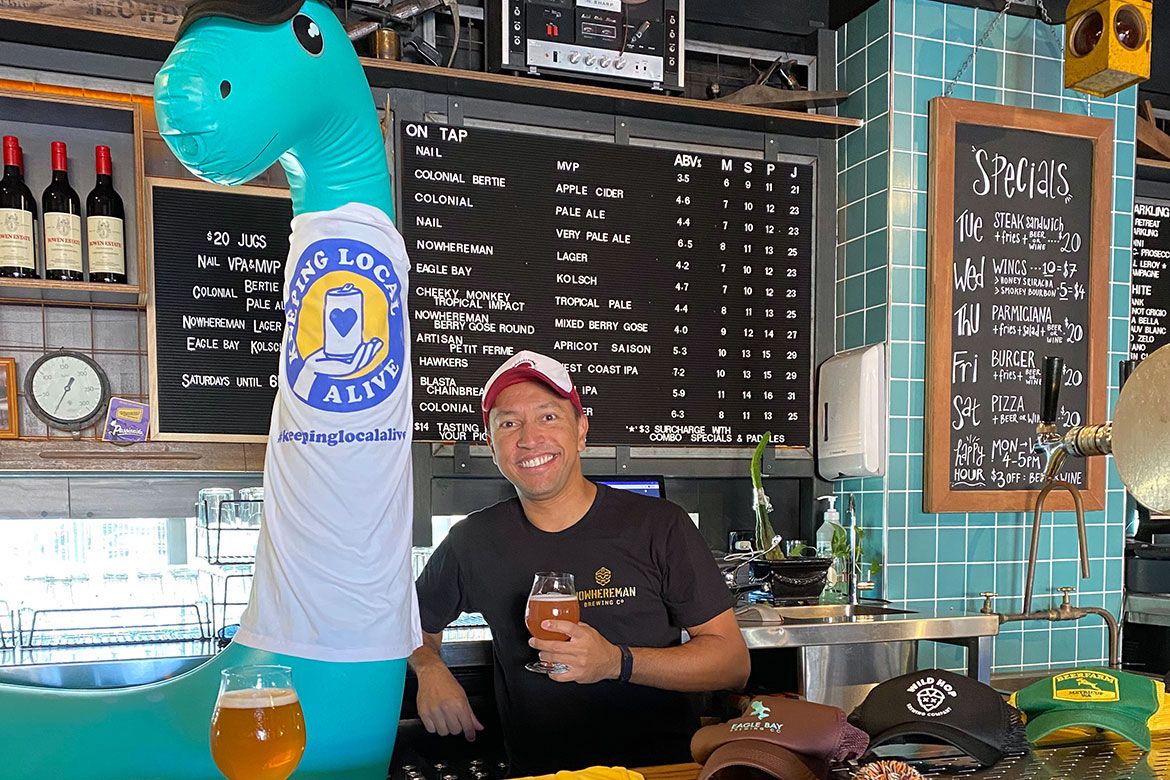
While writing this article, further easing of restrictions has been announced in Victoria, the state hit worst by COVID, and, all being well, beer lovers there can look forward to the return of the country’s biggest beer festival, Good Beer Week, in May. Not only is it another sign of a return to something approaching normality, but the event offers an added incentive for people to get back out exploring the city’s diverse beer and hospo scene.
Justine also points to a greater willingness of governments at different levels to listen and support than was the case pre-COVID.
“Them really getting behind industries and pushing them back to where they should be as a highly valued part of life – that’s leaps and bounds ahead of where we would have been if the pandemic didn’t happen,” she says.
Yet, for all the positivity and good news, it would be remiss to end such an article without a note of caution.
The imminent end of JobKeeper and other support mechanisms looms large for many in hospitality and other severely-impacted industries like tourism. The need to extend a safety net for certain parts of the economy and the hardest hit regions has been falling on deaf ears for months.
“They’re just throwing us in the deep end,” is how Iain puts it, pointing out how the fatigue and mental exhaustion many people are carrying over from 2020 can make dealing with the challenges of 2021 even greater.
“The next few weeks are going to be interesting. It’s a good bet that not all of us will be doing the same roles or going to the same places,” he says.
Justine believes it will be six months before the impact of the end of JobKeeper is known, yet strikes a note of optimism.
“I’ve spoken to so many operators,” she says, “and whether they are small, medium or large, they say the same thing, and that’s that they’re running their businesses differently and smarter.”
You can read part I of this mini-series here. And, if you're reading before midnight on March 23, 2021, it's still Keeping Local Alive's Beer Swag Day, which means there's still time to take part and, maybe, win!
Article written by James Smith and Will Ziebell.



